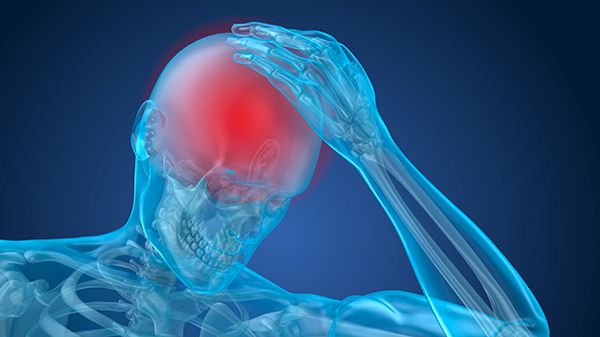Brain Injury
Jan 10, 2019 • 6 views

Traumatic brain injury typically results from a violent blow or jolt to the head or body. An object that penetrates brain tissue, like a bullet or shattered piece of skull, can also cause traumatic brain injury. Mild traumatic brain injury might influence your brain cells quickly. More-serious traumatic brain injury may result in bruising, torn tissues, hurt and different physical injury to the brain. These injuries may result in long-run complications or death.
Symptoms-
Symptoms vary greatly depending on the severity of the head injury, but may include any of the following:
Vomiting
Lethargy
Headache
Confusion
Paralysis
Coma
Loss of consciousness
Dilated pupils
Vision changes (blurred vision or seeing double, not able to tolerate bright light, loss of eye movement, blindness)
Cerebrospinal fluid (CSF) (which may be clear or blood-tinged) coming out of the ears or nose
Dizziness and balance problems
Breathing problems
Slow pulse
Slow breathing rate, with an increase in blood pressure
Ringing in the ears or changes in hearing
Cognitive difficulties
Inappropriate emotional responses
Speech difficulties (slurred speech, inability to understand and/or articulate words)
Difficulty swallowing
Body numbness or tingling
Droopy eyelid or facial weakness
Loss of bowel control or bladder control
Those who are having any of these above mentioned symptoms are said to be suffering from Traumatic Brain Injury and are eligible for the treatment which is mentioned and explained below.
What is the treatment-
Mild TBI, generally known as concussion, might not need specific treatment apart from rest. However, it's vital to follow a health care provider’s direction for complete rest and gradual come back to traditional activities after a mild TBI. If a person resumes normal activities and starts experiencing TBI symptoms, the healing and recovery process may take much longer than if he or she had followed the health provider's instructions.Certain activities, like engaged on a pc and concentrating hard, will tire the brain even though they're not physically exigent. The person with the concussion may need to cut back these types of activities or may have to be compelled to rest between periods of such activities to let the brain rest. In addition, alcohol and different medication can slow recovery and increase the probabilities of re-injury.
Children and youths who might have sustained a concussion during sports ought to stop playing straight off. They should not come back to play till a health care supplier who is skilled in evaluating concussion confirms they're prepared. Re-injury throughout recovery will slow healing and increase the probabilities of long-term issues. On rare occasions within which someone gets another concussion before healing from the primary one, permanent brain harm and even death might result.
How is the treatment done-
In most cases, emergency care focuses on stabilizing the patient and promoting survival. This care might embody making certain adequate oxygen flow to the brain, controlling blood pressure, and preventing any injury to the top or neck.3 Once the patient is stable, other types of care for TBI and its effects will begin.
Surgery is also required as a part of emergency care to reduce extra injury to the brain tissues. Surgery may include:
·Removing clotted blood -Bleeding within the brain or between the brain and skull will result in massive areas of clogged blood, generally known as hematomas, that place pressure on the brain and damage brain tissues.
·Repairing skull fractures -Setting severe skull fractures or removing pieces of skull or alternative debris from the brain will help start the healing method of the skull and encompassing tissues.
·Relieving pressure in the skull -Making a hole within the skull or adding a shunt or drain will relieve pressure within the skull and permit excess fluid to empty.
